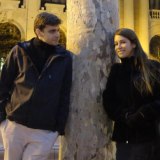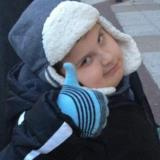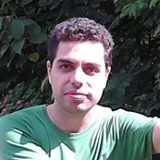Miguel Nicolelis, mestre em anular limitesNote a bandeirinha no
<a href='http://www.nicolelislab.net/NLNet/Load/NLnet_Load.html' target='_blank'>SITE</a> 
As descobertas, os projetos, a trajetória e a visão de mundo de um
cientista em busca de um novo Brasil
Flavio Lobo e Riad Younes escreve para a “Carta Capital”:
Miguel Nicolelis fala, nesta entrevista, sobre a sua forma inovadora de
estudar o cérebro e explica as idéias que norteiam a sua grande
empreitada no Brasil.
Cientista que não teme falar sobre política, só é reticente em relação
à crise política que se desenrola em Brasília: “Não tenho nada de novo
ou importante a comentar a respeito. Só quero dizer que trabalho pelo
País, e não para este ou aquele governo”, diz ele.
Os demais temas são tratados com entusiasmo. Pesquisa, universidade,
educação, arte e revolução estão entre as áreas pelas quais Nicolelis
transita com desenvoltura ao esclarecer os projetos que desenvolve e os
objetivos que persegue.
Leia a entrevista:
- O Miguel engajado da época da faculdade mudou?
Acho que é a mesma coisa, só mudaram as ferramentas. Quando decidi que
queria fazer ciência, percebi que era um compromisso sério. Ou você faz
ou não faz. Ficar no meio-termo não vale a pena. Tem muita gente que
fica, e fica contente com isso. Mas eu queria mais, como no caso da
criação da escola de esportes para crianças do bairro na época da faculdade,
por exemplo. O clube da faculdade era só para aquela elite da medicina
da USP. E eu, com uma grande amiga, a Neiva Brandão, que também me
ajuda no projeto esportivo lá de Natal, tínhamos essa idéia de criar uma
escola de esportes infantil, que se chamou Medsports. No ano que vem ela
completa 25 anos, e é uma das melhores escolas de esporte de São Paulo.
Hoje é tão bonito ver isso, porque têm crianças que fizeram Medsports e
entraram na medicina e têm filhos dos caras que fizeram Medsports, que
são médicos hoje, e mandam os filhos para a Medsports. Ou seja,
criou-se realmente esse senso comunitário, aquilo é mais do que só clube dos
alunos ou dos médicos. Virou um clube do bairro de Pinheiros, das
crianças de Pinheiros. O projeto esportivo de Natal é uma Medsports
aumentada, para 5 mil crianças.
- Coisa de revolucionário?
Na faculdade, eu queria fazer a revolução, uma palavra maravilhosa, mas
que era profundamente vazia porque a palavra em si não quer dizer nada,
só os atos lhe dão sentido. A verdadeira revolução é você mudar a vida
de alguém que existe, que está na sua frente. Alguém, por exemplo, que
precisa ir para a escola e ter educação de qualidade.
- Como será essa educação oferecida às crianças da periferia de Natal?
Eu varri o mundo procurando experiências pedagógicas interessantes e
cheguei ao seguinte: você tem de trazer a mãe para a escola. A
adolescente que está grávida, abandonada pelos pais, ou a mulher que está
abandonada pelo marido, ou mesmo uma mulher casada, que seja, mas que não
tenha uma perspectiva de vida. Ela tem de receber a educação que nunca
teve, achar uma profissão, achar o rumo da felicidade dela. Nosso projeto
pedagógico, que está sendo concluído, parte dessa inclusão das mães.
- E para as crianças, como vai ser?
Vamos ensinar para a criançada que fazer ciência é brincar. E todo
mundo gosta de brincar. Só que é brincar de uma maneira um pouco diferente,
com um pouco mais de critério. Nós criamos uma série de iniciativas que
o Ministério da Ciência e Tecnologia apoiou e estamos agora pondo em
prática. Em cima do nosso prédio, o primeiro laboratório, estou
construindo a laje para um observatório astronômico. Quero trazer um telescópio
dos EUA para a criançada subir lá e olhar o céu de Natal. E você começa
brincando. Você pega o telescópio e aprende a mexer nas coordenadas.
Acha Vênus, Júpiter, Saturno… A matemática envolvida nisso passa a ser um
jogo, passa a ser uma maneira de descobrir e ver coisas belas e
impressionantes. O conhecimento traz recompensa instantânea. Para o verdadeiro
cientista, a recompensa é ver, descobrir coisas novas. O projeto de
Natal é um piloto de algo muito maior. Queremos educar com esse espírito.
As crianças serão agentes de transformação. Eu disse ao presidente
Lula: o meu sonho é ter 100 mil crianças pelo Brasil sendo educadas nesse
sistema, no qual você educa um ser crítico, um ser que tem capacidade,
por si só, de aceitar o que é razoável, recusar o que não é, ter uma
visão crítica do mundo.
- Como outros grandes cientistas, o senhor usa freqüentemente linguagem
estética para falar de ciência. Ciência e arte são próximas?
A ciência tem um componente de arte. Até para os sentidos. A gente ouve
o cérebro, por exemplo. Na neurofisiologia, a gente reconhece as
diferentes áreas do cérebro pelo barulho, amplificado, de sua atividade
elétrica. É uma sinfonia numa tonalidade ainda pouco conhecida.
- Quais foram as principais inovações que o senhor fez nos estudos do
cérebro?
MN: A teoria que eu defendo, que ainda não é a teoria dominante, mas
está rapidamente chegando lá, é a de que um neurônio não significa
absolutamente nada do ponto de vista funcional. Se você perder um neurônio, o
cérebro não está nem aí. Nem mesmo para perda de milhares de neurônios.
Por quê? Porque ele usa coleções de células, atuando coordenadamente,
para exercer comportamentos. Essa é a grande teoria do meu trabalho,
isso é o que eu tenho experimentado, demonstrado uma série de princípios.
- O projeto do IINN, que pretende integrar atividades que em geral
existem separadas, tem alguma relação com a sua visão do cérebro?
Sem dúvida. Porque a conclusão à qual cheguei sobre a tal revolução da
qual quero fazer parte é que a ciência tem valores que, se aplicados a
qualquer atividade social, levam à transformação. Não é que eu queira
que essas crianças sejam necessariamente cientistas. Mas quero aplicar
no processo educativo, de fato, a busca incessante da verdade, que move
a ciência. Há vários institutos de neurociências no mundo, mas não como
o nosso – com projetos sociais e econômicos agregados. Além do
atendimento educacional e de saúde, queremos gerar um pólo de biotecnologia,
uma “indústria do cérebro”, que vai gerar empregos e renda. Isso ao lado
de um “Campus do Cérebro”, onde haverá todo o processo de produção de
conhecimento novo e de aplicação desse conhecimento em causas sociais. A
meta é criar um pólo integrado e auto-sustentável de geração de
conhecimento e desenvolvimento social.
- Em quais articulações internacionais o instituto deverá se inserir?
Ele integrará uma rede. Conheço diretores de institutos mundo afora e
estamos trabalhando para criar uma rede internacional com a mesma visão
de Natal. Vários desses caras vieram para Natal há um ano e meio, num
simpósio que organizamos, e disseram “é isso mesmo, nós queremos
embarcar nessa brincadeira”. Estamos montando uma estrutura e o instituto de
Natal poderá compartilhar recursos internacionais, não só do ponto de
vista de equipamentos, mas também de financiamentos. Uma das missões
dessa rede é dar suporte a outros futuros institutos nos moldes de Natal no
Terceiro Mundo. Natal é o pioneiro. A intenção é replicar o modelo.
- Por que Natal?
Pois é. Era bem fácil fazer em São Paulo. Eu sou daqui. Mas o Brasil
precisa deixar de ser tão desigual também na área da ciência. Nós
adotamos uma cidade, Macaíba, ao lado de Natal, onde nós temos o nosso
terreno, a nossa sede. O sonho é que, em uma geração, Macaíba seja outra
cidade, seja um modelo, um modelo para as pessoas perceberem que é possível
fazer.
- E será mesmo possível reproduzir esse modelo?
Eu quero clonar, tenho um plano para espalhar outros campi desse tipo
pelo Brasil. Fiz essa proposta ao Ministério da Ciência e Tecnologia e
ao presidente Lula. Não tenho ilusão de que vá acontecer amanhã, mas
identifiquei com os meus colegas de vários países 12 áreas de ciência
básica nas quais o Brasil tem de investir para manter a sua soberania,
gerar desenvolvimento econômico, ampliar a qualidade educacional e a
qualidade de vida da população. Em Macaíba, a mortalidade infantil é de 80
crianças por 1.000 e vem crescendo. Só 5% da cidade tem esgoto. Queremos
que toda a população com até 17 anos tenha acesso aos benefícios dos
projetos educacional, esportivo e de saúde.
- Quais são essas outras áreas prioritárias?
Nós já identificamos 12 localidades pelo Brasil que sofrem o mesmo grau
de exclusão, com índices de desenvolvimento humano entre os piores do
País. E 12 áreas de pesquisa prioritárias. Por exemplo, poderá haver um
Instituto do Mar, provavelmente em Macapá, no delta do Amazonas, outros
seriam de nanotecnologia, antropologia latino-americana, genética…
Depois de Macaíba, o próximo deverá ser no sul do Piauí, na área de
biotecnologia de alimentos. Mas não acho uma boa estratégia focar esses planos
neste momento em que o instituto de Natal está prestes a entrar em
atividade. A grande tarefa agora é fazer o IINN deslanchar.
- Isso é viável economicamente no Brasil?
Você não imagina o que eu fiz nos últimos três anos, além da
neurociência. Aprendi até a pagar PIS/Pasep. Para criar a nossa associação, a
Aasdap, tive de reconhecer firma sessenta e poucas vezes. Foi uma
maravilha (risos). E comecei a estudar os orçamentos brasileiros. O Brasil não
carece fundamentalmente de dinheiro para pesquisa. Tem pouco,
precisaria de mais, mas falta de dinheiro não é o maior problema. O Brasil
aplica muito mal o seu dinheiro.
- O que explica essa ineficácia?
Isso infelizmente começa dentro da própria academia. Num sistema que se
diz meritocrático, mas que ainda deixa muito a desejar. O pretenso peer
review system (o sistema acadêmico de avaliação pelos pares) brasileiro
é uma piada. As relações pessoais ainda são determinantes nas
avaliações e escolhas. Tenho várias críticas ao modelo de financiamento de
pesquisa americano, mas lá, pelo menos, se você não publicou um trabalho na
área, você não ganha financiamento para um projeto nem... não há meios,
no way. As avaliações baseiam-se em critérios bem definidos. Para que o
sistema seja sério, é preciso ter critérios absolutamente quantitativos
na seleção de projetos. No Brasil, as coisas baseiam-se em, digamos,
“relações públicas”. Mas, nos EUA, virei professor titular em seis anos e
nunca prestei um concurso na minha vida. Cada vez que subi na carreira
acadêmica, apenas mandava o meu currículo, um comitê internacional
avaliava os meus trabalhos e decidia se eu merecia ou não o cargo. Nunca
fiz um concurso, muito menos entrevista. Vejo as universidades
brasileiras de certa forma congeladas, dominadas, em geral, por um corporativismo
que sufoca o espírito de função social que as legitima.
- Dizendo essas coisas, o senhor deve enfrentar bastante resistência,
não?
O projeto do instituto deu um tremendo susto em parte da comunidade
acadêmica brasileira. Houve gente que disse que eu vinha para cá porque
queria ter o meu feudo, uma casa de praia, um lugar para passar as
férias. Outros diziam “ah, isso aí é entusiasmo de exílio, vai durar uns seis
meses e passar”. Só que estou nisso há três anos e meio e o instituto
já vai começar a funcionar. O Brasil é difícil. Não minimizo isso. É
difícil de verdade. Mas inovar a ciência também é difícil. E a gente
consegue.
- Mas, além de desconfiança e resistência, o senhor tem angariado
aliados.
A beleza é a seguinte: para cada pessoa que não faz e não deixa que o
outro faça – porque essa é a filosofia dominante no Brasil, infelizmente
– tem um cara como o do Sírio-Libanês (Mauricio Ceschin), que fala
“Miguel, nós vamos fazer”. Uma professora da escola pública de Natal vem e
diz: “Isso é a coisa mais linda que eu já vi, conte comigo, não posso
dar dinheiro, mas sou voluntária, vou subir lá com a molecada para
aprender com eles a olhar para o céu”. Isso daí vale todo o esforço. Eu
tenho 128 trabalhos científicos publicados. Já vi de tudo. Já mandei
trabalho, que era o melhor da minha carreira, e o avaliador disse: “Isso aqui
é uma doidice”. E, de repente, aquele mesmo artigo sai na Science (uma
das principais revistas científicas) e vira referência, é citado em mil
lugares. O que você aprende como cientista é a criar uma pele bem
grossa para suportar frustração. Quando o cara me diz que não vai fazer, e
também não vai me deixar fazer, eu digo que tudo bem, faço um outro
caminho para chegar onde quero. Até agora tem funcionado.
- Por que o Santos-Dumont no nome da sua associação?
O Santos-Dumont é o maior cientista brasileiro e um herói para mim. Nos
momentos mais duros da minha carreira, quando senti que não queria mais
ficar no Brasil, que não havia como, pensava nele para lembrar que é
preciso perseguir o sonho. Se for realmente a obsessão da sua vida, você
tem de ir atrás. Não interessa para onde ele leve você. Se você
realmente está envolvido em realizar algo, tem de ir atrás. Esse espírito me
fez mudar para os EUA. E sabe que lá acabei trabalhando com um cara que
é parente do mecânico-chefe que trabalhava com o Santos-Dumont? O meu
amigo John Chapin, que orientou o meu pós-doutorado. Bela coincidência,
não?
(Carta Capital, 18/1)<a href='http://www.nicolelislab.net/NLNet/Load/NLnet_Load.html' target='_blank'>SITE</a>




















